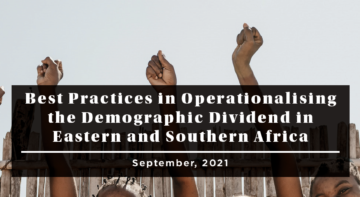
The sub-Saharan Africa (SSA) region faces numerous health challenges, including a high burden of disease relating to HIV/AIDS, unintended pregnancies and poor maternal, newborn and child health (MNCH). This is largely a result of weak health systems compounded by a low demand for, and utilisation of, health care services in the region.
Integration of HIV/AIDS, family planning (FP), and MNCH services is widely seen as part of the solution to improving health delivery in SSA because the three issues are fundamentally interconnected and clients seeking HIV/AIDS services and those seeking SRH services are mostly in the same age range and share common health needs. HIV is mostly transmitted through unprotected sex or directly from mothers to babies during childbirth or breastfeeding. Family Planning is a key intervention that enables families to decide when and how many children to have. Pregnant women require quality MNCH services in order to have healthy pregnancies and healthy babies. Family Planning and MNCH interventions together have been shown to reduce the burden of maternal, newborn and child mortality.
Related Publications





